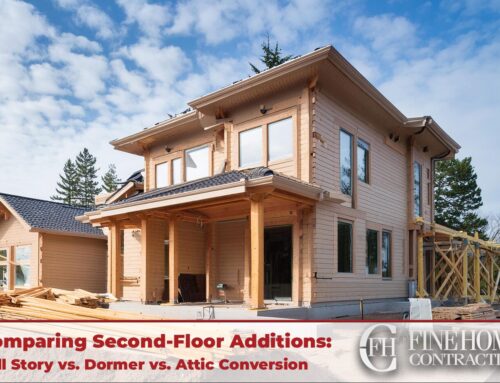For homeowners taking on a major remodel or renovation project, construction management provides an alternative approach compared to hiring a general contractor. With construction management, the homeowner brings on a construction manager or firm to oversee the project, while retaining control over decision making and hiring contractors.
Benefits of Hiring a Construction Manager
There are several advantages to using construction management for a home remodel or renovation:
Finding the Right Construction Manager
Not all construction management firms are equal. Here are tips on selecting the right one:
Construction Management Process
If you decide to hire a construction manager, here is an overview of how the typical process goes:
Initial Consultation and Planning
•Initial meetings to evaluate the project scope, budget, timeline and discuss the overall plan.
•Paperwork including contracts and agreements on fees and responsibilities.
•Securing necessary permits and approvals before work begins.
Creating the Project Schedule
•Detailed schedule with sequenced phases and project milestones.
•Coordination of the trade contractors needed for each phase.
•Ordering long-lead time materials and items early.
Overseeing Bidding and Sourcing
•Soliciting competitive bids from qualified contractors in each trade.
•Vetting contractors, checking references, and advising on the best selections.
•Negotiating pricing and contracts with the chosen contractors.
Managing and Scheduling Contractors
•Functions as the general point of contact for all contractors.
•Scheduling contractor work in coordination with homeowner availability and other project activities.
•Ongoing management of contractors throughout project to ensure quality and budget is maintained.
Providing Ongoing Project Updates
•Regular progress reports to the homeowner with schedule and budget updates.
•Quick notification of any issues or need for change orders.
•Ensure great communication and transparency throughout the project.
Managing Inspections and Approvals
•Arranging all necessary inspections for building codes, HOA requirements, etc.
•Interfacing with inspectors and getting sign-offs on completed work.
•Ensuring any final project approvals are secured.
Project Completion and Wrap-Up
•Develop punch lists for any final fixes needed from contractors.
•Verify all lien releases are signed and no claims remain on the property.
•Provide documentation like warranties, maintenance manuals, and as-built drawings.
Construction Management vs General Contractor
Construction management differs from hiring a general contractor in some key ways:
Level of Homeowner Involvement
•With construction management, the homeowner takes an active role in decisions and contractor selection.
•A general contractor handles almost everything, with less hands-on control by homeowners.
Handling Payments to Contractors
•With construction management, the homeowner pays contractors directly after approvals.
•General contractors typically manage all contractor payments out of the total project budget.
Liability and Risk Exposure
•Construction managers act in an advisory role, with limited liability.
•General contractors accept more project liability and risk.
Flexibility and Change Orders
•Construction management allows more homeowner control over changes.
•Change orders typically require general contractor approval.
Cost Considerations
There are a few ways that construction management can impact your total costs:
Construction Manager Fees
•They charge a fee for their services, often 10-20% of total project costs.
•These fees are generally fixed or capped through a contract agreement.
Potential Cost Savings on Contractor Bids
•Their oversight on bidding can sometimes result in lower contractor costs.
•However, cost savings are not guaranteed.
Overall Budget Control
•While costs on individual contracts may be controlled, construction managers are not responsible for holding to a final overall budget.
•General contractors are more likely to deliver a complete project within a guaranteed maximum budget.
Key Takeaways
Weighing the Pros and Cons
Construction management offers more control for homeowners who want that flexibility, but involves taking on more responsibility for the overall project outcomes.
Who Can Benefit from Construction ManagementIt can work well for large, complex projects where the homeowner has time and interest to be actively involved in decision making throughout the process.
How to Have a Successful Project
Whether using construction management or a general contractor, the keys are thorough planning, realistic budgeting, excellent communication, and working with reputable professionals.








